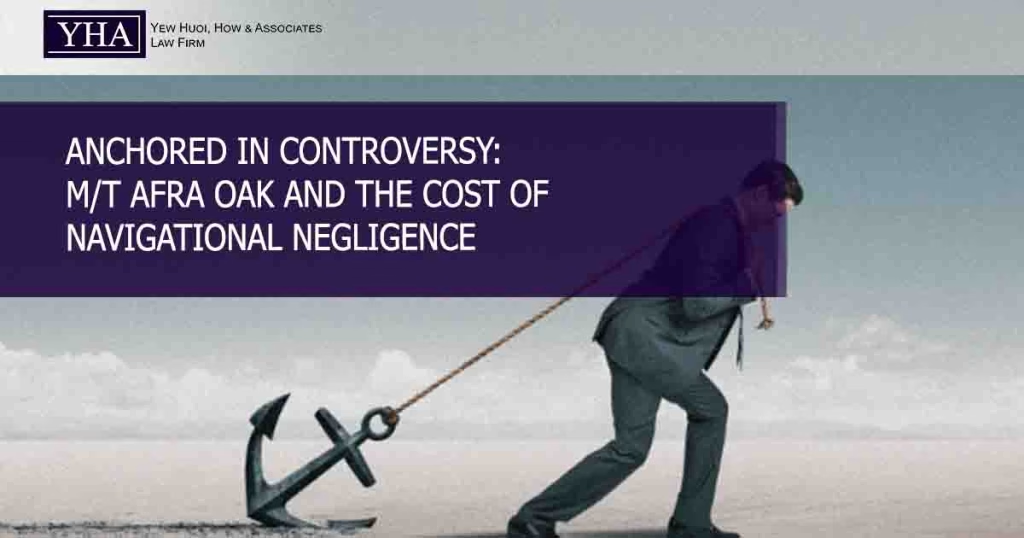Summary and Facts
The case Mercuria Energy Trading Pte v Raphael Cotoner Investments Ltd (M/T “Afra Oak”) [2024] 2 Lloyd’s Rep 609 involves a dispute between the charterer, Mercuria Energy Trading Pte (“ME”), and the owner, Raphael Cotoner Investments Ltd (“RCI”), concerning the detention of the vessel M/T Afra Oak by the Indonesian Navy. The vessel anchored in Indonesian territorial waters near Singapore under the master’s discretion while awaiting further orders from the charterer. The master’s actions led to the vessel’s detention and his subsequent conviction in Indonesian criminal proceedings. The arbitration and appeal focus on whether the master’s actions violated charterer employment orders and if the owner’s defenses under the US Carriage of Goods by Sea Act 1936 (US COGSA) applied.
Legal issues
i. Did the master breach the charterer’s employment order by anchoring in Indonesian waters?
ii. Can the owner rely on the Hague Rules’ negligent navigation defense under Article IV(2)(a) despite breaching employment orders?
iii. How should the tribunal’s findings be interpreted regarding compliance with local laws and good seamanship?
Court Findings
i. The tribunal interpreted the charterer’s instruction as requiring the vessel to anchor in Singapore EOPL (Eastern Outer Port Limits) but only where it was safe and legal to do so. The master’s decision to anchor in Indonesian waters violated this order due to non-compliance with UNCLOS and Indonesian law.
ii. The tribunal found that the master’s decision demonstrated negligence in navigation and seamanship by anchoring in a prohibited area, which led to the vessel’s detention.
iii. The English High Court upheld the tribunal’s conclusion that the negligent navigation defense under US COGSA Article IV(2)(a) could apply to the owner. The court emphasized that negligent navigation exceptions could protect owners if the error relates to navigation or seamanship, even if it breaches employment orders.
Practical Implication
This decision has significant relevance for maritime operations, particularly in regions like Malaysia, where adherence to local and international laws is critical. The case highlights the importance of clear and precise instructions from charterers, especially in high-traffic and legally sensitive areas like the Straits of Malacca. For Malaysian shipowners and operators, it emphasizes the need for masters to exercise good seamanship and comply with territorial regulations to avoid detention and liability. Furthermore, the case underscores the application of international conventions like UNCLOS and the importance of legal foresight in managing disputes, providing valuable lessons for Malaysia’s maritime industry and regional operations.
Reference cases
a. Mercuria Energy Trading Pte v Raphael Cotoner Investments Ltd (M/T “Afra Oak”) [2024] 2 Lloyd’s Rep 609

